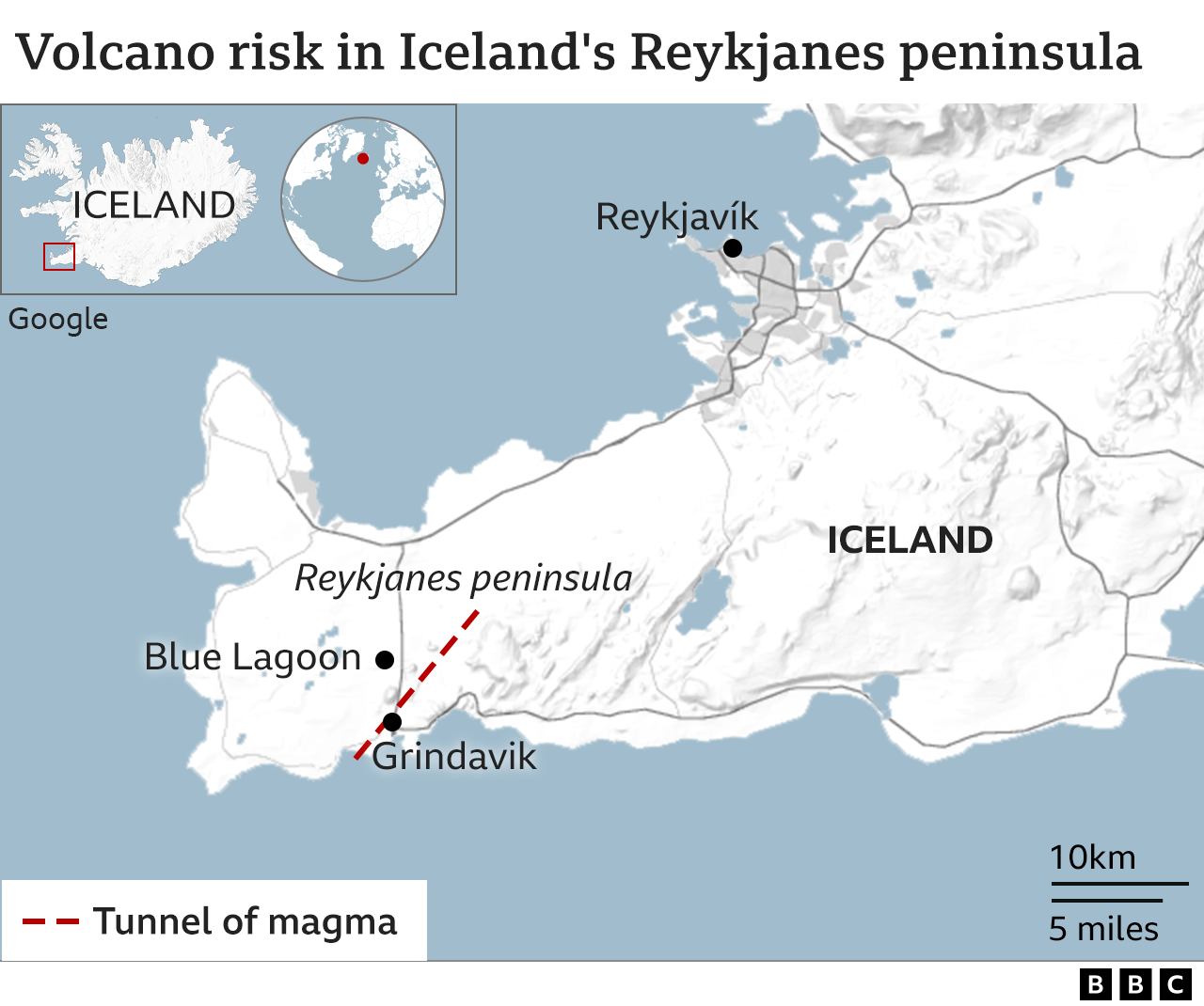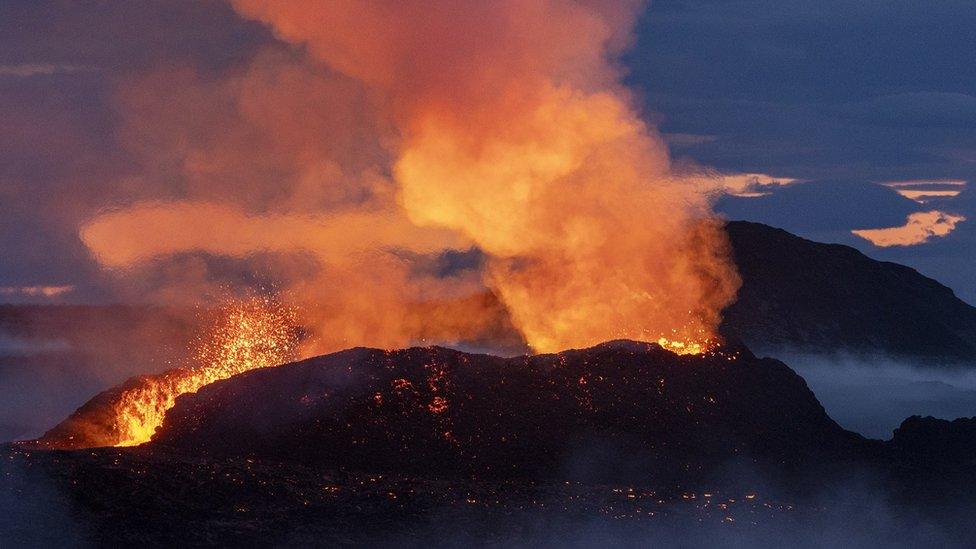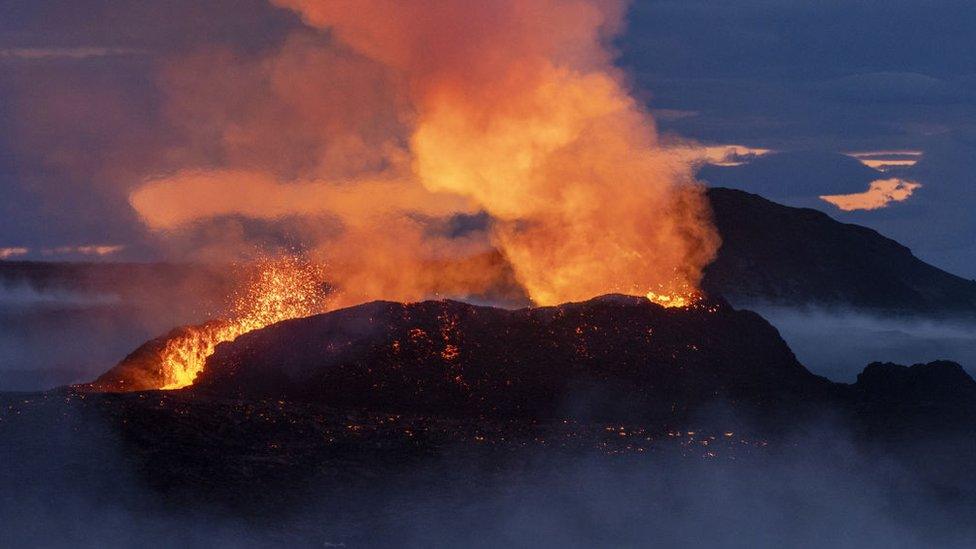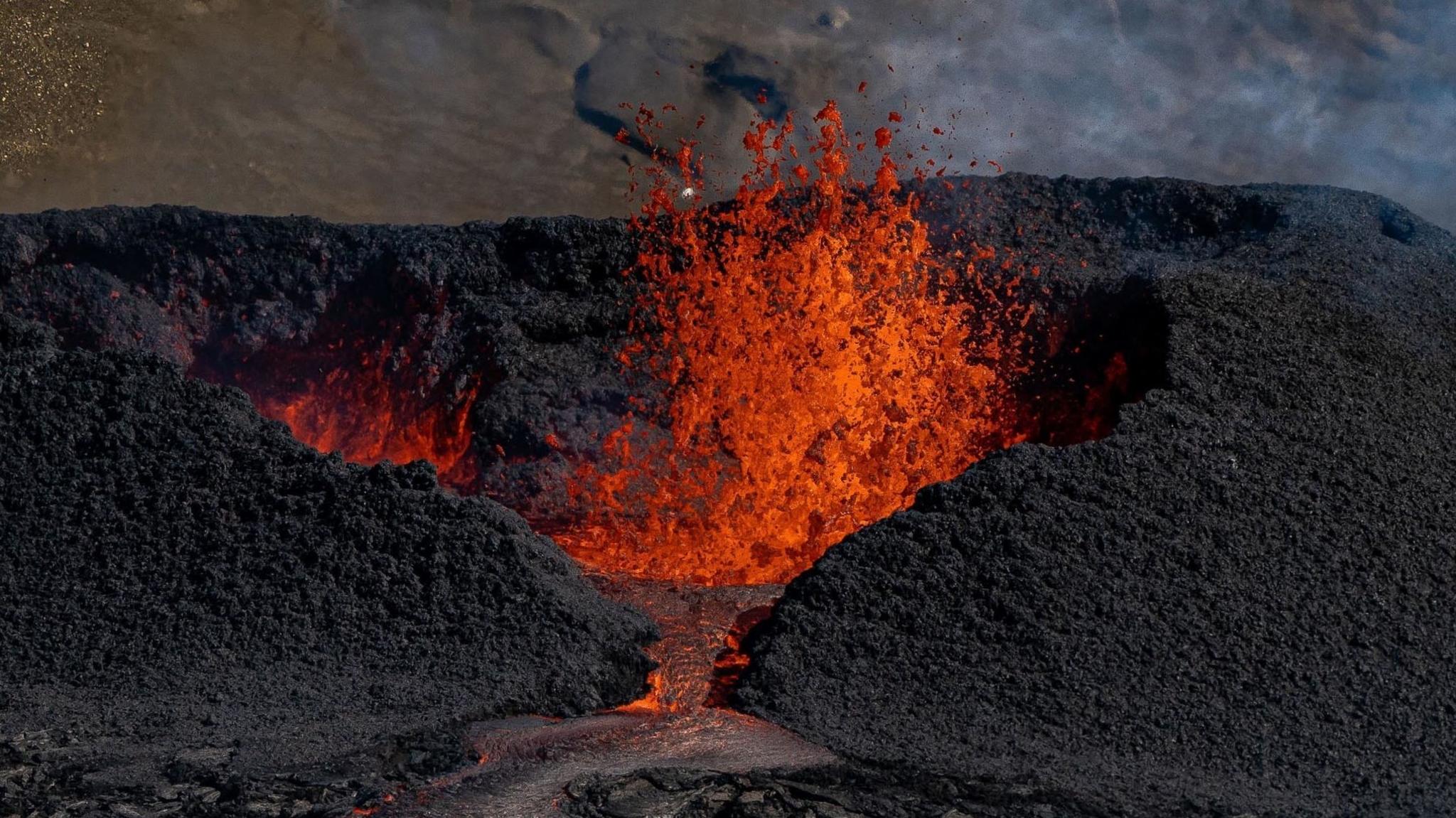Iceland volcanic eruption still likely, say scientists
- Published
Watch: Entire road split in Iceland after quakes
Residents of an Icelandic town struck by hundreds of earthquakes have briefly been allowed back to their homes to collect belongings.
More than 500 quakes hit the south-western Reykjanes Peninsula on Monday.
A volcanic eruption is still expected, scientists say, despite the quakes being weaker in recent days.
Thousands of people have been evacuated from the town of Grindavik, under which most of the tremors have taken place.
Pedrag, a native Serb who has lived in Iceland for many years, was one of those who fled the town with his wife on Friday - the day a state of emergency was declared.
An evacuation order for Grindavik was given in the early hours of Saturday.
"If you talk to Icelandic people who have lived there all their lives, they say they have never felt something like that," he told the BBC, referring to the large quakes that rocked the fishing port for several hours.
Pedrag and his partner have been staying at an emergency shelter ever since but were among those let back into Grindavik on Monday to retrieve some of their belongings.
He said that while he had not seen any damage in the area he lives in, he had seen images of the town centre, which had been affected. There were also reports that the road had sunk as much as a metre in some parts.
Couple film house shaking as tremors hit Icelandic town
Another man who was forced to abandon Grindavik, Gisli Gunnarsson, said he feared he might never see his home again.
The 29-year-old music composer, who was born and raised in the town, told PA news agency the situation was "grim".
Other locals said they were particularly upset as eruptions in Iceland normally happened in unpopulated areas.
"This is one of the biggest evacuations we've ever had. It's a huge incident. It has a great effect on all Icelanders," Aslaug Yngvadottir Tulinius of the Icelandic Red Cross told the BBC.
Officials said on Monday afternoon that Grindavik would remain evacuated overnight, as the situation continues to be monitored on a "minute by minute" basis.
According to volcanologists, the latest updates could indicate a smaller impending eruption than was previously thought.
It may still put the town in real danger, however, because of the possibility of lava flows. Experts have stressed that a 15km-long (9 mile) river of magma running under the Reykjanes Peninsula is still active.
The area had remained dormant to volcanic activity for 800 years before a 2021 eruption.
Thor Thordason, professor of volcanology at the University of Iceland, told the BBC that magma was now less than 800m below the surface and that an eruption appeared imminent.
"Unfortunately, the most likely eruption side appears to be within the boundary of the town of Grindavik," he added.
The town is just 15km south of Keflavik International Airport, but flights are still arriving and departing as normal.
An ash cloud from an Icelandic volcano eruption in 2010 led to the cancellation of tens of thousands of flights, but experts believe a repeat of that disruption is unlikely.

- Published14 November 2023

- Published12 November 2023

- Published9 November 2023
